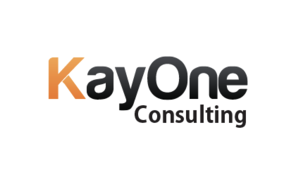How To Find A CFO For a Startup
Introduction
As your startup company takes off, you may wonder if you will need an extra brain or skills for all financial aspects of your business — and in most cases, the answer is yes. Making your early-stage startup vision a reality and meeting your expansion goals go hand in hand with sound financial management, financial strategies, and investments.
This is where you will need a Chief Financial Officer (CFO). A CFO will help you manage your startup’s financial present and future by overseeing financial reporting, financial planning, budgeting, and more.
A CFO will help your startup company grow beyond just making your finances simple. They can also provide strategic financial expertise and guidance, help with cash flow management, planning, and reporting, and make sure that you make the most of your business finances.
Wondering how to find a CFO for a startup? Finding a highly talented and capable CFO is tough and tricky for most businesses and companies, and the challenges and complications only increase for startup firms.
Startups have Unique Needs
While startup companies and early-stage businesses may be small, they come with many advantages and benefits larger companies simply don’t have. For example, because startups have small management teams, they are usually considerably faster in making decisions.
Startups are also more agile and flexible. They are also more responsive in reacting to the potential market and customer changes than larger firms. However, despite these benefits, many startups fail to make it past the challenging first couple of years of operations.
Hiring a startup CFO with the skills and experience to take a startup firm to profitability is one of the most important decisions your company will make. Many companies, including early-stage business ventures and startups, wouldn’t have survived the COVID pandemic if it were not for the guiding hand and business acumen of a capable and fully engaged CFO working closely with other senior executives, such as CEO and CIO, to stabilize the business.
Responsible for corporate finance, financial statements, and financial management, CFOs have definitely been on the front line in helping their business organizations transition to new and better ways of operating while finding new opportunities to boost productivity, increase efficiency, and reduce costs.
As a startup founder, you should take your time to find and hire a CFO for your startup with the right skills, knowledge, and experience after considering their track record and background. This is when many founders often ponder – “How To Find A CFO For a Startup”
Hiring the wrong chief financial officer can result in countless problems and issues. It is vital to hire a CFO that fits your needs, experience requirements, and work ethic.
[monsterinsights_popular_posts_inline]
Hiring a Startup CFO
Sooner or later, almost all startups need a focused, experienced, and skilled CFO, and many will need a full-time CFO to meet their needs. If your startup company is about to seek investments, you should have a full-time or part-time CFO that can also present and communicate.
It is important to have complete control of the financials of any startup. Keep in mind that many startups and small businesses fail because of failure or negligence in this area, and your company cannot afford that. It is valuable to have someone who can look after the financial aspects of your business. For example, CFO for a startup will have a close eye on the burn rate.
So, whether your startup is looking to hire its first chief financial officer, or make a change to current financial leadership, now is the right time to accelerate your search.
The demand for this important executive role will likely increase considerably in the coming months. Also, there may be more CFOs available to choose from since CFOs who put off making a career move during the COVID-19 pandemic start considering or weighing new job options.
What a CFO Does in a Startup
The CFO position is essential in any organization, and a startup is no different. Making sure that you have a chief financial officer can be instrumental to your success and growth. A CFO is an individual who manages a company’s financial activities, including financial planning, budgeting, and accounts payable, and accounts receivable.
You should know that a CFO’s role in a startup is similar to that of a financial controller and treasurer. A CFO reports directly to the Chief Executive Officer of a company.
When CFOs generate value for a business, they work as agents for change. CFOs are also strategists since they develop corporate strategies.
What May Trigger Your CFO Search
Here are many reasons you may need a CFO, such as the following:
- Create a financial model or strategy for fundraising
- Bookkeeping oversight
- In-depth planning and financial analysis
- Regular cash flow forecasts
- Fundraising assistance and connections
- Help with financial management and operations
Making Sense of Where CFOs Fit the Bill
The US Bureau of Labor Statistics revealed that 20% of startup companies go belly up during the first two years of operations. Also, the same study showed that 45% failed in the first five years.
While many factors and variables contribute to this failure, a research study by the US Bank indicated that 82% of businesses fail because of a lack of adequate cash flow management. Looking at these stats and figures, you can understand that owning a startup company is no easy feat.
And as a startup business owner, you must be bold enough to face all kinds of obstacles and challenges. You also need measures in place to make sure that you are not setting up your business venture for failure. This is why hiring a CFO makes sense.
A modern CFO is more than a bookkeeper. They are your startup’s financial strategist, planner, and treasurer in charge of budgeting, projecting revenue generation, and developing contingency plans. In many cases, CFOs also lend funding advice and help standardize control and compliance processes.
[monsterinsights_popular_posts_inline]
Guide to Finding a Startup CFO
What to Expect Before Starting Your Search
Before you go out searching for a full-time or part-time CFO, you should set your expectations and requirements for the new CFO. You can set your requirements by taking the following steps:
- List all your needs and requirements
- List all preferences for your CFO’s experience and skills
- Ballpark your budget
Starting the Search
Look for CFO Candidates with Startup Experience
Although all CFOs have experience and expertise working with businesses, planning, and managing finances, not all CFOs have experience working with startup companies specifically. Startup businesses have their own unique financial challenges, risks, and opportunities that CFOs who have not worked with them in the past may not be familiar with.
Consider CFOs with a Successful Track Record
When you are looking for a startup CFO to help your business grow, you would prefer someone with a proven and long track record of success. It is best to look for chief financial officers who have helped other startups achieve profitability, raise capital, and scale their businesses.
Find CFOs Who can Fit Your Startup’s Business Culture
It is vital that the CFO candidate you hire is an excellent fit for your startup’s corporate culture. This is because they will work closely with your team and should be able to gel and bond with the rest of the company.
CFO Qualities and Skills that Can Take Startups to the Next Level
The role of a CFO was evolving before the health pandemic, becoming more visionary and proactive than fiduciary. However, it has become clearer during the crisis that companies and startups can benefit significantly from having CFOs with the following skills.
Digitally Savvy
Today’s CFOs should have a general and comprehensive understanding of modern technology, such as artificial intelligence and machine learning, and its impact on the business.
For instance, they must know and understand how tools, such as advanced analytics and data mining, can help improve efficiency and operational effectiveness.
Forecasting, Financial Modeling, and Data Analysis Capabilities
Apart from the usual certifications, such as an MBA and CPA, and experiences associated with the role, your startup CFO must be well-versed in financial budgeting, forecasting, planning, financial modeling, and returns-profiling analyses.
These skills and capabilities are a minimum requirement for any value-adding and effective finance operation.
Risk Assessment and Mitigation Skills
Even on their best day, startups are like unpredictable, turbulent vehicles, constantly flying in the face of many destabilizing forces. Therefore a big part of your CFO’s job duties will be to assess, evaluate, and manage risks.
Collaboration
As companies and businesses worldwide create new and more agile team structures and expedite transformative programs, you need a reliable senior leadership team that can effectively collaborate and invest in promoting cross-departmental coordination and cooperation.
For example, CFOs must work closely with other executives, such as chief information officers and chief technology officers, to help the business consider financial and operational issues and the potential risks and benefits of investments in new technology, such as artificial intelligence.
Vision and Strategic Judgment
Your CFO must at least be forward-looking, proactive, and a driver of strategic growth and thinking along with the founders and board of directors. Where applicable, they should have a proven track record for value and prioritize creating initiatives.
Ability to Develop and Manage an Agile Infrastructure
Another capability of any startup CFO is the ability to develop a lean and agile financial organization from scratch, particularly from within a fast-evolving and dynamic environment.
[monsterinsights_popular_posts_inline]
How To Find A CFO For a Startup?
If you are looking to conserve financial resources, you may wonder: do I really need a CFO? In most cases, the answer is a resounding yes. This is because CFOs expand your skill range in many ways, such as financial planning, treasury management, investor relations, and financial strategy.
Develop Contingency Plans and Measures
Startup founders and business owners are usually negligent of long-term issues, such as proceeds investment and debt management. Your priority may be to survive the first two to three years, and you might become short-sighted.
A CFO will prevent this from happening. Since they are skilled in financial forecasting, planning, and hindsight, they usually create and implement strategies that deal with unique issues and financial challenges. And the same goes for handling unstable or sudden growth.
Oversee Cash Flow
A key challenge for startups and new ventures is having the ideal amount of funding in order to take off properly. Many startup companies can easily and quickly spend their venture capital before even making a name for themselves. However, CFOs handling a business can manage payables and expenses to avoid any unnecessary spending.
Provide Funding Assistance
Startup owners and business founders usually need funds from banks and other financial institutions, such as credit unions, to take their ventures to the next stage. This usually entails an exhaustive and complex process of applying for loans in order to secure funding.
If you’ve a CFO by your side, you will have somebody to guide you through this critical phase. Their financial planning and due diligence skills will help you attract and rope in investors.
Must You Hire a Full-Time Chief Financial Officer for Your Startup?
Between developing a new product and generating revenue, business founders are not always willing or able to hire a permanent CFO during the early stages of their startups. It is no secret that in-house C-suite executives, such as COO, can be expensive, so a Virtual CFO for your startup could be the answer.
A fractional chief financial officer works part-time for a fixed or predetermined amount of time and usually helps with specific goals, such as raising capital or growing revenue. They provide senior expertise and guidance when you need it the most without draining your budget.
When you notice that your business is expanding too quickly and need a reliable plan for planning future growth, note that a fractional CFO can step in to develop a stronger financial foundation.
Outsourced vs. Part-Time
Outsourced CFOs
These CFOs offer full-time, contract assistance and support to your startup. Outsourced CFOs will be able to bring GAAP comprehension as well as a career’s worth of experience and expertise to your business.
Part-time CFOs
These CFOs work with your startup company from its inception to fruition. They will have more time to get familiar with your business’s data and will be able to prioritize your ROI after the launch of your startup.
[monsterinsights_popular_posts_inline]
Final Thoughts
An excellent CFO will help you develop the proper financial foundation to scale your startup quickly and confidently. Also, keep in mind that the right startup CFO will have the skills and capacity to navigate between financial strategy and execution, bring passion and strategic direction to your company, and also add value beyond their specific function as your company scales.
Ready to find a virtual CFO who can elevate your business’s financial success? Look no further! Our expert tips and strategies outlined in this article will guide you on your search for the perfect fit. And when you’re ready to take your finances to the next level, remember to turn to KayOne Consulting for all your virtual CFO needs. Contact us today to schedule a consultation and start optimizing your finances!




